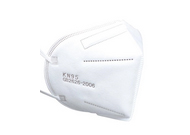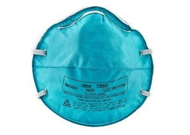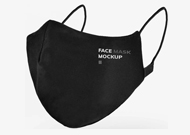



In the wake of the global pandemic that took the world by storm, the significance of masks in safeguarding public health became more evident than ever before. Masks have evolved from being simple accessories to becoming powerful tools in the fight against infectious diseases, allergens, pollutants, and other airborne hazards.
In this essential guide, we delve into the world of masks, exploring the characteristics, applications, and benefits of four popular types of masks: KN95, Oxygen Masks, Surgical Masks, and Cloth Masks.
KN95 masks have become increasingly familiar during the pandemic, but understanding their significance is crucial. KN95 is similar to N95 masks, and offers a high level of filtration efficiency, effectively filtering out airborne particles, including viruses and bacteria. They form a tight seal around the nose and mouth, providing superior protection compared to standard cotton face masks.
Furthermore, it is important to note that while KN95 masks offer excellent protection, their effectiveness depends on proper fit and usage. Be cautious of counterfeit or substandard products, and always ensure you purchase from reputable sources. KN 95 face masks play a vital role in safeguarding public health, making them an essential component of personal protective equipment (PPE) for healthcare professionals and the general public alike.
Oxygen masks are essential medical devices designed to deliver controlled oxygen levels to patients with respiratory issues. They cover the nose and mouth, forming a secure seal, and are connected to an oxygen source via a flexible tube. These masks find crucial uses in various medical scenarios, including treating respiratory distress in conditions like asthma and COPD, aiding post-surgery recovery, providing immediate oxygen support during emergencies, assisting patients with chronic respiratory conditions, and ensuring a stable oxygen supply during patient transportation.
Moreover, these medical masks play a pivotal role in improving patient outcomes, alleviating respiratory problems, and saving lives by ensuring patients receive the oxygen they need to breathe properly.
Surgical masks are crucial tools in the battle against infectious diseases, serving to protect both wearers and those around them. These masks are designed to create a barrier that blocks respiratory droplets containing viruses and bacteria, reducing the risk of transmission. When worn correctly, surgical face masks cover the nose and mouth, preventing the release of potentially harmful particles into the air. They are widely used in healthcare settings to safeguard patients and medical professionals during medical procedures.
Additionally, in everyday life, these masks have become a vital component in controlling the spread of infections in crowded places or areas with a higher risk of exposure. By acting as a frontline defense, surgeon masks play a pivotal role in promoting public health and curbing the transmission of infectious agents.
These cotton face masks have emerged as a sustainable and practical option for everyday use, especially during the ongoing global pandemic. Offering a creative blend of fashion and functionality, these masks come in a wide array of designs and materials, allowing individuals to express their personal style while adhering to safety guidelines.
In addition, cloth masks are also suitable for non-medical settings, such as grocery shopping, outdoor activities, and public gatherings, providing an added layer of protection for both the wearer and those around them. By embracing these masks as part of our daily routine, we can contribute to a safer and more sustainable future for all.
Proper maintenance and cleaning of masks are crucial to ensure optimal protection and extend their lifespan. Whether you use disposable surgical masks, cloth masks, or even respirators like KN95 face masks, following these guidelines will help keep your masks effective and safe for use:
To sum up, understanding the different types of masks - KN95, Oxygen Masks, Surgical Masks, and Cloth Masks - empowers us to make informed choices for protecting ourselves and others. Wearing masks correctly and following health guidelines are key to curbing the spread of diseases and creating a safer world.
Yes, wearing a mask, particularly an N95 or KN95 respirator, is recommended during periods of bad air quality to protect your respiratory system from harmful pollutants and particulate matter.
While both KN95 and N95 masks provide high filtration efficiency, they are not exactly the same. KN95 face masks are certified under Chinese standards, while N95 masks adhere to American standards. However, they offer similar levels of protection against airborne particles.
For protection against smoke and fine particles, N95 or KN95 masks are highly effective. These masks can filter out harmful pollutants, making them suitable for dealing with smoke from wildfires or industrial emissions.
During periods of bad air quality, it is advisable to stay indoors, keep windows and doors closed, and use air purifiers if available. If you need to go outside, wear a mask, preferably an N95, to reduce your exposure to pollutants.
The best medical mask would be a surgical mask. These masks are designed to protect both the wearer and others from respiratory droplets and are commonly used in healthcare settings to prevent the spread of infections.
For COVID-19 protection, the best face masks are those that offer a high level of filtration and provide a proper fit. N95 or KN95 respirators are recommended for healthcare professionals and high-risk individuals. For the general public, well-fitted surgical masks or high-quality cloth masks with multiple layers can also be effective in reducing transmission.